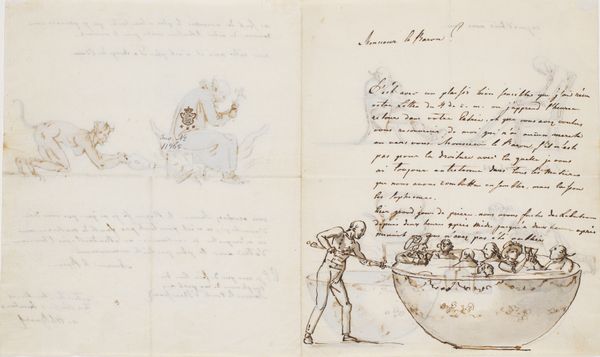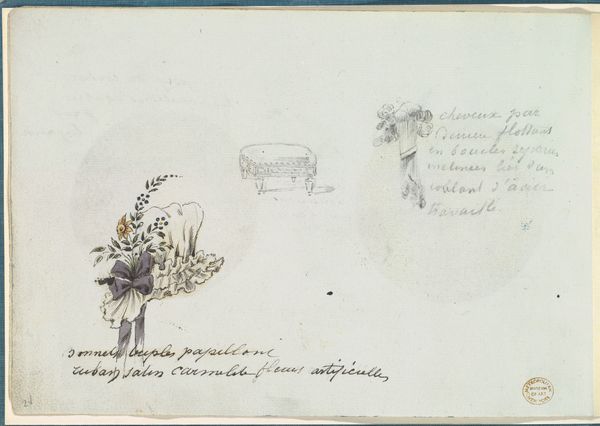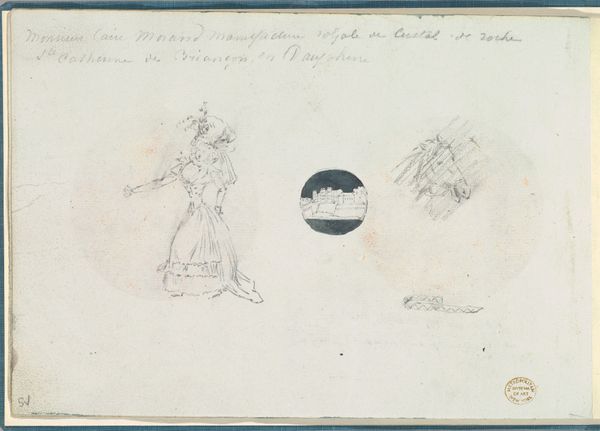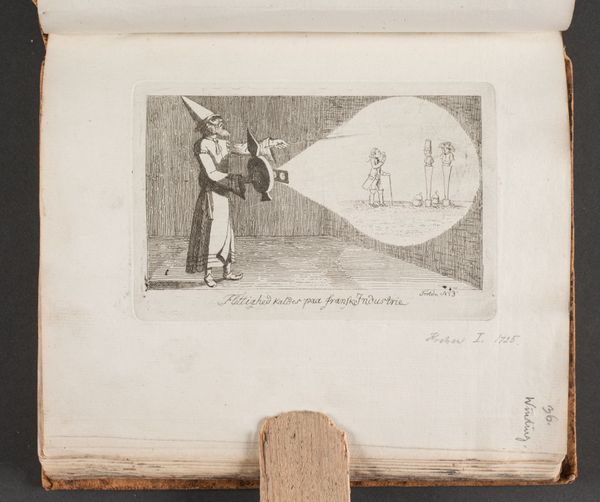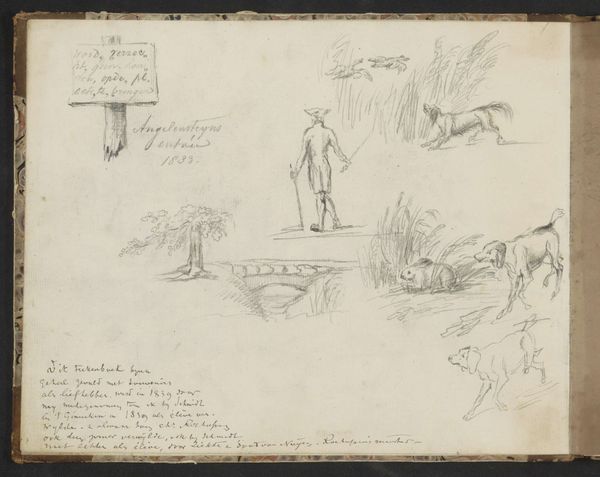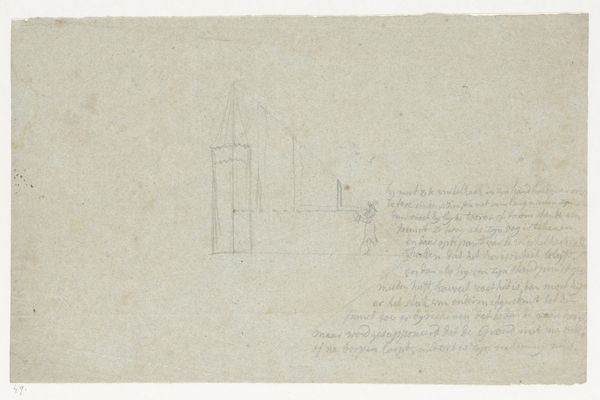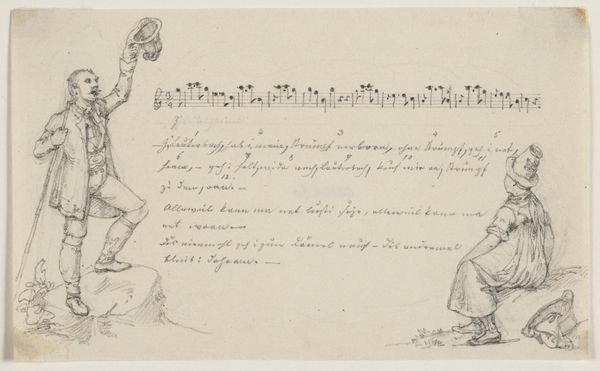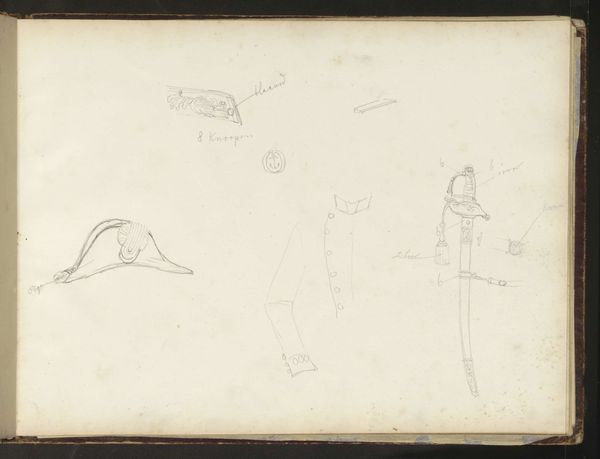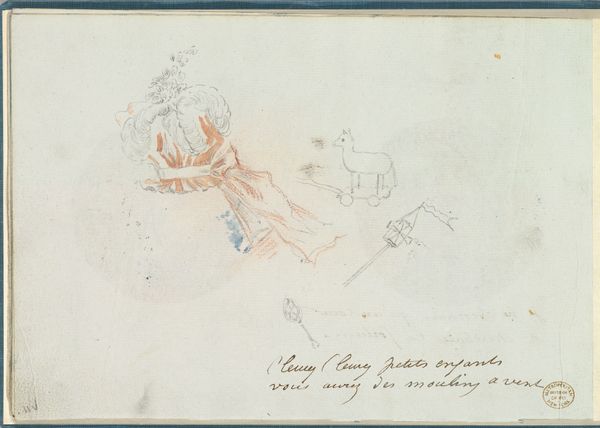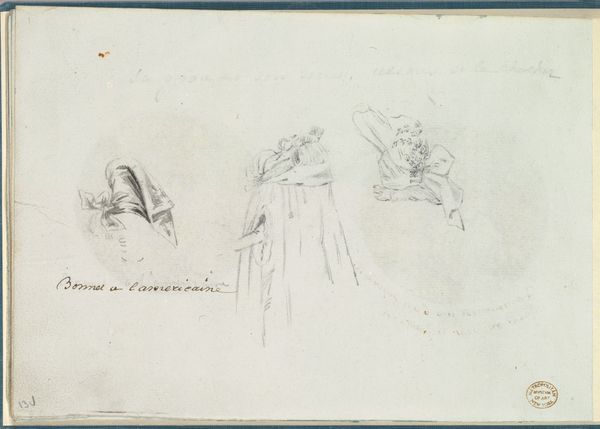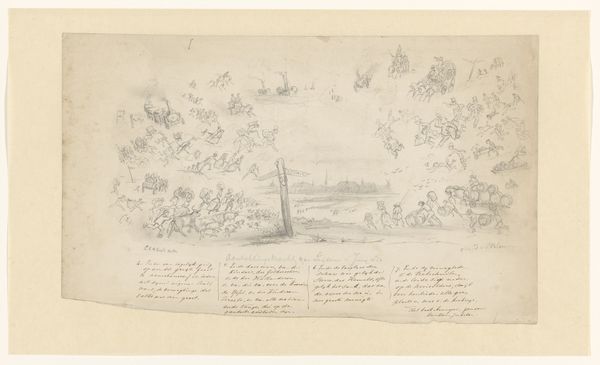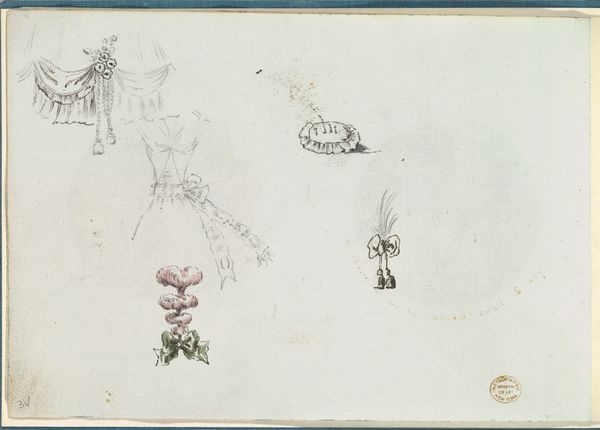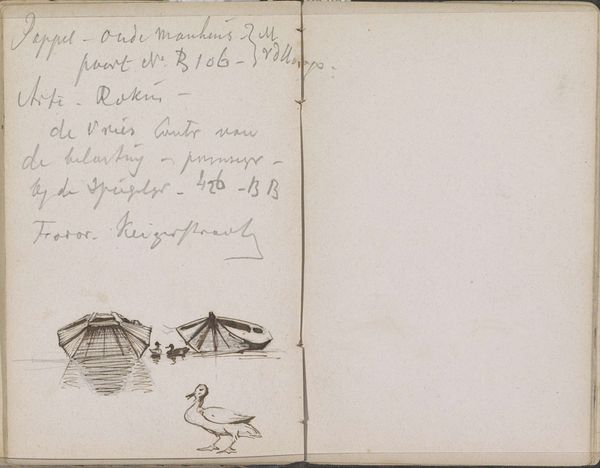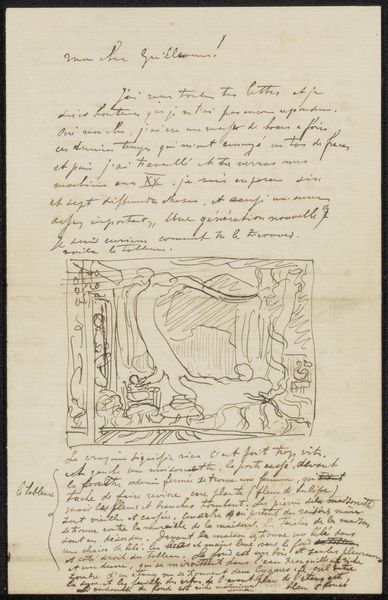
Roundel with Bird in a Landscape and Small Sketches 1785 - 1790
0:00
0:00
drawing, coloured-pencil, print, paper, watercolor, ink, architecture
#
drawing
#
coloured-pencil
# print
#
landscape
#
bird
#
paper
#
watercolor
#
ink
#
coloured pencil
#
watercolour illustration
#
miniature
#
architecture
Dimensions: Overall: 7 5/16 x 10 7/16 x 1/4 in. (18.5 x 26.5 x 0.6 cm)
Copyright: Public Domain
Curator: The piece before us is titled "Roundel with Bird in a Landscape and Small Sketches," made between 1785 and 1790 by an anonymous artist. It's a mixed-media work using watercolor, ink, and colored pencil on paper. Editor: My immediate impression is of delicacy, like a captured, fleeting thought. The circular frame contains this bird perched amidst a hazy landscape, almost dreamlike in its softness. Curator: Precisely. The composition utilizes a roundel to frame a pastoral scene, inviting a deeper consideration of form and structure. Note the balanced arrangement of the bird on its perch against the vague architectural structure, suggesting a carefully constructed pictorial space. The semiotic interplay of line and color creates a structured visual hierarchy. Editor: And what about the physical making? Look at how the watercolour bleeds softly, how the ink anchors the spontaneous scribbles alongside the roundel. These additions disrupt any formal reading. They suggest that this may have been something created by hand that's more about craft and creation of artwork as labour itself. Curator: While the annotations disrupt the purity of the landscape, I see them as integral, adding another layer to the work’s structural complexity. They create a deliberate contrast with the pictorial image, creating dissonance, a play of literary and pictorial signs. Editor: Yes, but those annotations—poems or journal entries, perhaps—hint at the lived experience behind this little scene. A domestic space with personal annotations and miniature artworks such as this likely reveal aspects related primarily from inside family units during the end of the 18th Century that many works from the 18th century generally suppress because the materials aren’t worthy to their subjects, let alone for high-class art audiences. Curator: An insightful observation! However, it would be a reductive dismissal. What seems informal might yet adhere to certain aesthetic precepts which deserve investigation. Editor: Perhaps both our perspectives hold truths. A study in contrasts and subtle connections. Curator: Indeed. An intersection of structured form and free expression.
Comments
No comments
Be the first to comment and join the conversation on the ultimate creative platform.
